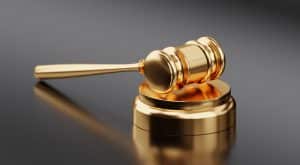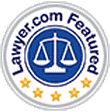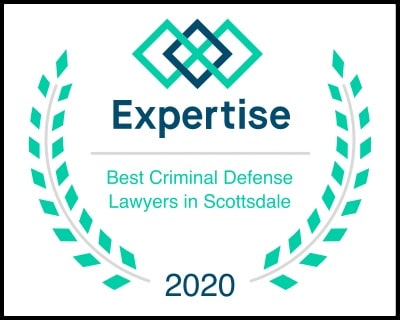Leesburg Fraud Defense Attorney
Fraud has different types. There is check fraud, forgery, credit card fraud, and identity fraud, to name a few. Each type has its own crime classification and penalties. Regardless of what type of fraud is committed, it often involves getting an innocent harmed.

Our Leesburg fraud attorneys at The Law Office of Kimberly Stover, PLLC will assess your situation and determine the best legal strategy to get the case dismissed or the penalties reduced. We will ensure that you understand the legal process so you know what to expect and decide the best legal action that is good for your situation. Our legal services are also available for fraud victims seeking legal support and representation.
Call The Law Office of Kimberly Stover, PLLC at (703) 810-3571 for your Free Case Consultation with an Leesburg Fraud Attorney!
Definition of Fraud
Virginia’s state law defines fraud as a deliberate action to deceive a person, business, or any institution to acquire an unfair gain or deprive another person of their legal rights. Fraud can be either a civil or criminal offense based on the elements surrounding the act.
Types of Fraud
The state code listed down the various types of fraud in Virginia and their corresponding penalties. An experienced Leesburg fraud attorney can guide you through the state code and explain to you how your fraud case is defined and the potential penalties you will be facing.

- Check fraud/Bad Check Law – Issuing a bad check to a person or an entity to defraud them knowingly is treated as a Class 6 felony for all persons or a misdemeanor, depending on the amount listed in the check. The issuance of bad checks by businesses is also punishable under this law, and it can be a misdemeanor if the check is below $200 or a felony if it is more than $200.
- Forgery – This occurs when a person allegedly falsifies an important item as a means to deceive another person or institution. Some of the most common forged items include public records, money, and legal documents. Class 4 felony is often attached to forgery charges.
- False pretenses – This type of fraud occurs if you trick, lie or misrepresent yourself to obtain property or title of another party for your own benefit. If one is found guilty of committing this fraud, they will also be guilty of committing theft or larceny.
- Identity theft – There are many types of identity theft enumerated in the Virginia Code, and they are categorized according to the intent of the perpetrator for committing the crime. Identity theft can range from stealing another person’s identity to sell it to another person or use it for a criminal act. The case can either be a misdemeanor or a felony, depending on the type of information and lost value involved.
- Credit card fraud – This fraud occurs when a person uses another person’s credit, debit, or prepaid card without their consent as collateral or security for a debt, or if they get the money that is way beyond their credit limit. Credit card factoring is also included under credit card fraud, a crime that happens when a person shows a falsified transaction record of a fake credit card number to a credit card merchant or issuer to defraud them.
- Securities Fraud – It usually involves fraud that affects investments, the sale of bonds, and trade. For this fraud, the perpetrator will use deceptive behavior to sway others into taking high-risk actions, which will result in financial loss. Some examples of securities fraud include Ponzi schemes, accounting fraud, and insider trading.
- Money laundering – Virginia prohibits anyone from knowingly engaging with people who conduct any financial transaction and know well that the items involved are a profit from illegal activity. This also covers converting money into electronic funds even if they know it was illegally acquired.
Fraud Case Investigation in Virginia
Once a person is charged with fraud, investigations will immediately occur to verify if fraud was indeed committed. The evidence will be brought to the court for their assessment, and if the evidence verifies you are guilty of committing fraud, you will be penalized according to the type of fraud you have committed.

Your assigned Leesburg fraud attorney will review the evidence against you and prepare your defense. We will also take our time to explain the fraud charges you are facing and prepare you at the same time in case you are asked to testify as part of your defense.
Penalties for Fraud Crimes in Leesburg
Virginia’s state law is quite specific regarding actionable fraud or fraud committed with the intent to make a false representation to mislead an individual or a group, eventually leading the victims to take the blame for the damages and losses incurred. Fraud penalties are also determined by the nature of the specific crime, with some fraud cases identified as a misdemeanor while others are considered a felony.
Some of the most notable penalties for fraud crimes in Leesburg include:
- If the defendant impersonates a state officer or a law enforcement officer, they will be charged with a year of imprisonment and a fine of $2,500. It is also considered a Class 1 misdemeanor conviction.
- Money laundering and obtaining a person’s signature or money through false pretenses is a Class 4 felony. It can lead to a prison sentence of 2 to 10 years and fines of up to $100,000. If it is a money laundering case, it can lead to a 40-year prison sentence and fines up to $500,000.
- For check fraud, it is considered a Class 6 felony, which can lead to 5 years in prison and a $2,500 fine. However, if the check issued is less than $200, the crime will only be considered a Class 1 misdemeanor.
- Fraud cases that are considered civil crimes, such as knowingly lying to another person who has suffered losses, will be handled by the civil court for penalties.
Defense Against Fraud Accusations
Our Leesburg fraud attorney will look at various defense strategies that can work for your case. We will modify the strategies to suit the outcome you wish to achieve and ensure they protect your rights simultaneously.
Here are some of the legal defenses we can use during your fraud case:
– Insufficient evidence
For this defense, we can argue that the prosecution did not provide enough evidence to prove that you committed fraud.
– Entrapment
If you did commit fraud, but the government coerced you to do it despite your position, you can use it as your defense and file charges of entrapment against the government officials who coerced you.
– Absence of intent to commit the crime
If the evidence does not show that you had the intent to commit fraud, you can argue that the charges should be withdrawn and that you are innocent of the charges.
– Non-fraudulent statement
During court trials, opinions cannot be used as an example of fraudulent statements. Any false statement cannot be considered fraudulent unless the defendant promised something to victims or if they distorted facts deliberately. The judge will review the statements to see if the statements are fraudulent or not.
– Admission of guilt
Defendants can also admit their guilt as their defense but add that they did not do it to deceive someone.
Get Your Free Case Consultation!

Want to ask more questions about our legal services? Or do you want to request our services for your legal troubles? Don’t hesitate to contact us today; one of our criminal defense lawyers will be with you to provide you with the legal assistance you need.
Call The Law Office of Kimberly Stover, PLLC at (703) 810-3571 for your Free Case Consultation with an Leesburg Fraud Attorney!




